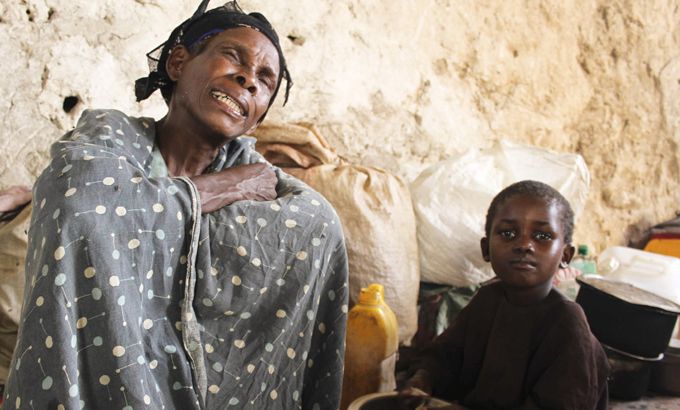
What is behind Obama’s new Africa strategy?
As the US increases covert military operations across Africa, we ask if Washington can lecture Africans about democracy.
The election of a US president with a Kenyan father was greeted by jubilant scenes in Kenya in 2008.
|
“[What] we are seeing is kind of the magic bullet approach to this administration’s counter-terrorism policy …. The United States is looking to head off some problems, what it sees to be threats to the homeland, ahead of time …. The question is are we making the problems worse …. we are exposing ourselves to threats that may not exist and we may actually be exacerbating them and directing them towards us.“ – Paul Mutter, a fellow at Truthout.org |
And Barack Obama talked about a new moment of promise for Africa when he visited Ghana in 2009.
Building on this theme, the White House has just launched a new strategy for Africa, promising to strengthen democracy and encourage economic growth through trade and investment.
Though the strategy did mention the importance of countering al-Qaeda across the continent, there was no reference to the role of the US Africa Command (AFRICOM), which was established in 2007 under George W Bush.
Under the Obama administration, the US has expanded its military footprint and its secret intelligence operation across Africa, establishing a series of small bases from which to launch spy missions and drone strikes on groups like al-Shabab in Somalia.
US troops have also been deployed, particularly in Uganda where they are searching for Joseph Kony, the leader of the Lords Resistance Army (LRA).
This is in addition to increasing numbers of private military contractors operating in Africa.
|
“AFRICOM has hijacked the rest of President Obama’s Africa policy. [In Mali], they went in with both feet and they encouraged the Malians … they gave Mali a lot of military assistance to go after al-Qaeda in the Islamic Maghreb instead of dealing with internal issues … and therefore that caused a big problem. “ – Nii Akuetteh, an African policy analyst |
Meanwhile, China has been steadily building up its strategic and commercial ties with the resource-rich continent.
China has overtaken the US in recent years to become Africa’s biggest trade partner as the continent’s bilateral trade with Beijing grew from $10.6bn in 2000 to $160bn last year.
In comparison, US trade with Africa was worth $38.6bn in 2000 but had only grown to $125.9bn by 2011.
So what is motivating US policy towards Africa?
Inside Story Americas, with presenter Shihab Rattansi, discusses with guests: David Shinn, a former US ambassador to Ethiopia and Burkina Faso; Paul Mutter, a fellow at Truthout.org; and Nii Akuetteh, an African policy analyst who was formerly the executive director of Africa Action.
|
“America has a responsibility to advance this vision, not just with words, but with support that strengthens African capacity. When there is genocide in Darfur or terrorists in Somalia, these are not simply African problems – they are global security challenges, and they demand a global response. That is why we stand ready to partner through diplomacy, technical assistance, and logistical support, and will stand behind efforts to hold war criminals accountable. And let me be clear: our Africa Command is focused not on establishing a foothold in the continent, but on confronting these common challenges to advance the security of America, Africa and the world.” Barack Obama, the US president addressing the Ghanaian parliament in 2009 |
FACTS ABOUT US AFRICA COMMAND:
- A Washington Post report details secret US surveillance in Africa
- Secret operations rely heavily on private military contractors
- The key hub for the US spying network is Ouagadougou in Burkina Faso
- US spy planes fly from Burkina Faso to Mali and Mauritania
- US spy planes search for al-Qaeda fighters in Islamic Maghreb
- Other surveillance targets include the Boko Haram group in Nigeria
- US private military contractors are also tracking LRA’s Joseph Kony
- Other main US hubs are in Uganda, Djibouti, Kenya and the Seychelles
- Camp Lemonnier in Djibouti is a base for US missions to Yemen and is used to launch spy flights against al-Shabab in Somalia